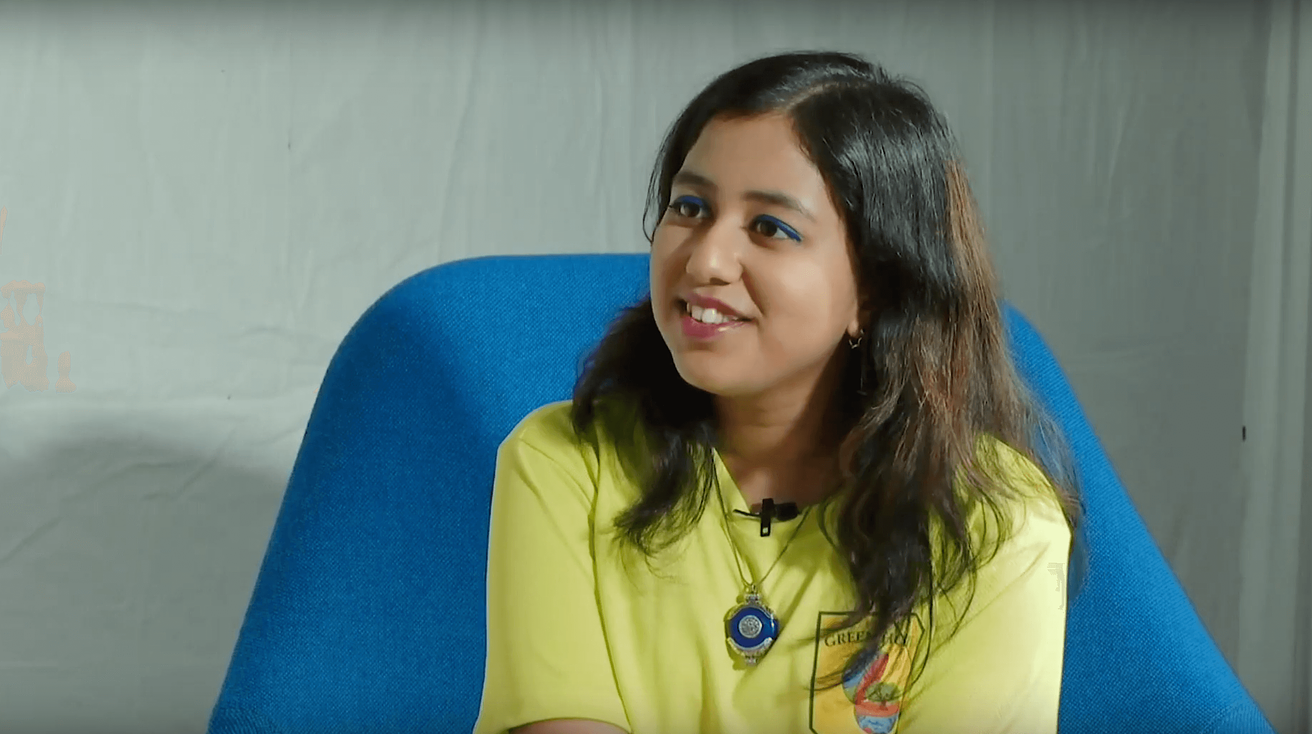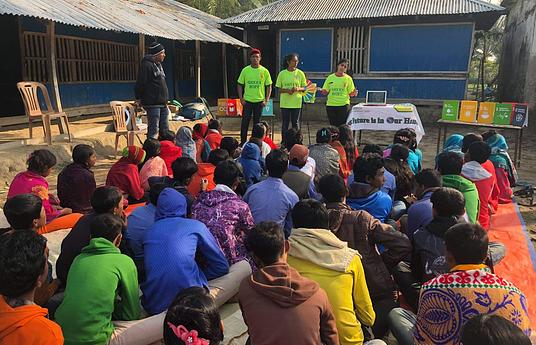Kehkashan Basu is the founder of the Green Hope Foundation, which is focused on giving a voice to children and youth in a discussion that arguably impacts them the most – the future. She is passionate about sustainability, inter- and intra-generational equality, girls and women’s rights, and climate justice.
What inspired you to create the Green Hope Foundation?
When I was 12 years old, I attended Rio+20, which was the largest environmental conference and was held in Brazil in 2012. Out of fifty thousand delegates present there which included Heads of States, policymakers, and activists, there were only a handful of children with me probably being the youngest. It was our future that was being decided but by others - by adults who wouldn’t live to see that future. So I decided that when I came back to my country, I would start an organization that would work to empower our children and young people in sustainability. That’s how Green Hope Foundation was born - to provide children with a platform to learn about the sustainability challenges and how to take actions to mitigate them.
What barriers did you face in building a youth movement on this scale?
The main barrier that I have faced while building Green Hope and moving to other countries is “the cynicism of adults” who look at me and my members as “they are just children. What can they do?” And that is probably the biggest barrier that I have faced and probably will continue to face as a young person. But we overcome that through our work and proving our merit by going out into the field and showing people that we care capable and age has nothing to do with capability. Another barrier is funding because as a youth organization it is very difficult to convince those same adults that we have the potential to do something. They would rather sponsor a fashion show than do something for the community or for a young person’s organization. But the thing we try to say is that you can do both, that is how sustainability works. But yes, that is one of the main barriers that we also face.
Why should young people get more involved in sustainability?
Young people are citizens of today and tomorrow. Therefore, it is imperative that they are involved in the sustainable development process because we are the ones who are going to be living through a dry, barren planet and will have a future that does not have biodiversity we have today or will be a war-torn world if we don’t act now. I firmly believe that my generation is the last one that has the opportunity to take the actions to create a sustainable future before it is too late. Education for Sustainable Development (ESD) helps us and all members of society to learn about these challenges and how to actions to stop them. Because if we don’t know about it, we can’t do anything about it. I think young people play a very important role in of course learning about it but also spreading awareness within their community and around the world.
What inspires you in education today?
I think the main thing that inspires me in education around the world is the peer-to-peer communication where I see, especially with Green Hope, when children talk to their friends and spread their knowledge. I think that is the best way that you can have education as you learn better when you can think, “okay, my friend is doing it so I can do it as well!” What I would like to see more in the world is adults understanding that it’s not just them telling the students and that’s it. They can also learn from their students. Basically they (teachers) impart the knowledge but children also impart their knowledge and that is how you get it together to create a holistic approach towards education.
What has been your most memorable experience with Green Hope?
My most memorable experience with Green Hope Foundation has been when we celebrated this new year on the Lebanon-Syria border at a refugee camp with 600 Syrian refugee children. There were girls much younger than me carrying babies and these children did not remember the last time that they had been in the classroom or even had a decent meal. Their faces were devoid of emotions and even though they were children, they had forgotten how to smile. But over the next couple of days where we conducted our workshops to engage them on environmental conservation, by the end of that, I had a bunch of ruckus-children laughing and happy. They were so eager at that point to plant trees and conduct a waste cleanup in their camp. My biggest reward was their smiles. Because we had given them a sense of empowerment to them where they too could do something in their own zone of influence. And that is what we try to follow - having a life of dignity for all and leaving no one behind. We gave those children that opportunity to feel “Yes, I can do something as well! It just not just others who can and I have not lost everything just because I have gone through so much trauma. There is something I have done and I am going to take the initiative” So after our first day of workshops, the second day was filled with children who because they too wanted to know how they could use fun and creative ways to engage their friends and create a movement in their camp. So, by the end of our experience at the camp, they were the most excited children have ever seen and that is why it is my most memorable experience with Green Hope because we had been able to help bring those smiles on their faces.
What would you like to say to young people all over the world?
My message to young people around the world is to always follow your dream and never lose sight of what you want to do. Whatever comes from the heart stays and if you are honest, hardworking and passionate, there is nothing that can stop you. I think the main thing to remember is that age has nothing to do with capability and as young people, we will always face and have nay-sayers on our path but the main thing to remember is that we are a group that works together. I think we have the support of other young people as well and that is why we just need to take that extra step, walk that extra mile to get the future we want, which is a just, sustainable and equitable future.
Learn more about the Green Hope Foundation, on their innovation page.

